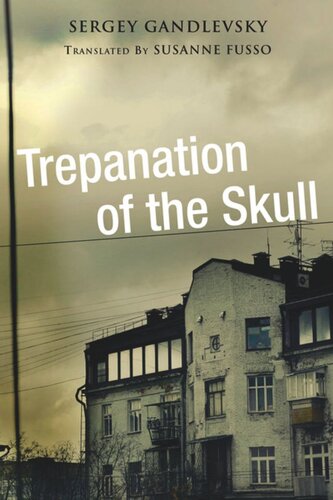

Most ebook files are in PDF format, so you can easily read them using various software such as Foxit Reader or directly on the Google Chrome browser.
Some ebook files are released by publishers in other formats such as .awz, .mobi, .epub, .fb2, etc. You may need to install specific software to read these formats on mobile/PC, such as Calibre.
Please read the tutorial at this link: https://ebookbell.com/faq
We offer FREE conversion to the popular formats you request; however, this may take some time. Therefore, right after payment, please email us, and we will try to provide the service as quickly as possible.
For some exceptional file formats or broken links (if any), please refrain from opening any disputes. Instead, email us first, and we will try to assist within a maximum of 6 hours.
EbookBell Team

0.0
0 reviewsSergey Gandlevsky is widely recognized as one of the leading living Russian poets and prose writers. His autobiographical novella Trepanation of the Skull is a portrait of the artist as a young late-Soviet man. At the center of the narrative are Gandlevsky's brain tumor, surgery, and recovery in the early 1990s. The story radiates out, relaying the poet's personal history through 1994, including his unique perspective on the 1991 coup by Communist hardliners resisted by Boris Yeltsin. Gandlevsky tells wonderfully strange but true episodes from the bohemian life he and his literary companions led. He also frankly describes his epic alcoholism and his ambivalent adjustment to marriage and fatherhood.
Aside from its documentary interest, the book's appeal derives from its self-critical and shockingly honest narrator, who expresses himself in the densely stylized version of Moscow slang that was characteristic of the nonconformist intelligentsia of the 1970s and 1980s. Gandlevsky is a true artist of language who incorporates into his style the cadences of Pushkin and Tiutchev, the folk wisdom of proverbs, and slang in all its varieties. Susanne Fusso's excellent translation marks the first volume in English of Sergey Gandlevsky's prose, and it will interest scholars, students, and general readers of Russian literature and culture of the late Soviet and post-Soviet periods.